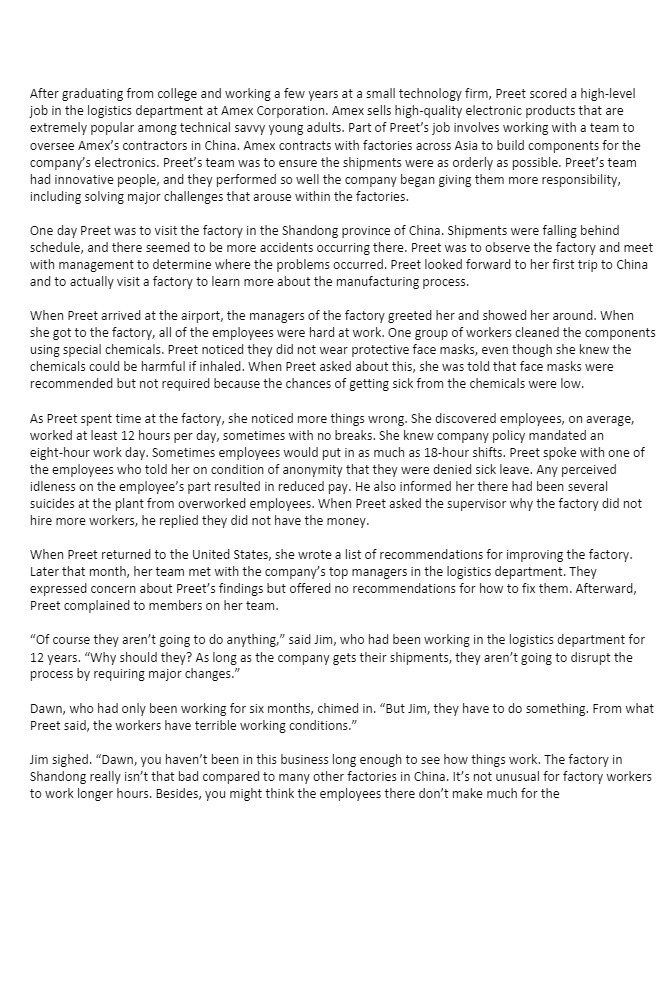After graduating from college and working a few years at a small technology firm, Preet scored a high-level job in the logistics department at Amex Corporation. Amex sells high-quality electronic products that are extremely popular among technical savvy young adults. Part of Preet's job involves working with a team to oversee Amex's contractors in China. Amex contracts with factories across Asia to build components for the company's electronics. Preet's team was to ensure the shipments were as orderly as possible. Preet's team had innovative people, and they performed so well the company began giving them more responsibility, including solving major challenges that arouse within the factories. One day Preet was to visit the factory in the Shandong province of China. Shipments were falling behind schedule, and there seemed to be more accidents occurring there. Preet was to observe the factory and meet with management to determine where the problems occurred. Preet looked forward to her first trip to China and to actually visit a factory to learn more about the manufacturing process. When Preet arrived at the airport, the managers of the factory greeted her and showed her around. When she got to the factory, all of the employees were hard at work. One group of workers cleaned the components using special chemicals. Preet noticed they did not wear protective face masks, even though she knew the chemicals could be harmful if inhaled. When Preet asked about this, she was told that face masks were recommended but not required because the chances of getting sick from the chemicals were low. As Preet spent time at the factory, she noticed more things wrong. She discovered employees, on average, worked at least 12 hours per day, sometimes with no breaks. She knew company policy mandated an eight-hour work day. Sometimes employees would put in as much as 18-hour shifts. Preet spoke with one of the employees who told her on condition of anonymity that they were denied sick leave. Any perceived idleness on the employee's part resulted in reduced pay. He also informed her there had been several suicides at the plant from overworked employees. When Preet asked the supervisor why the factory did not hire more workers, he replied they did not have the money. When Preet returned to the United States, she wrote a list of recommendations for improving the factory. Later that month, her team met with the company's top managers in the logistics department. They expressed concern about Preet's findings but offered no recommendations for how to fix them. Afterward, Preet complained to members on her team. "Of course they aren't going to do anything," said Jim, who had been working in the logistics department for 12 years. "Why should they? As long as the company gets their shipments, they aren't going to disrupt the process by requiring major changes." Dawn, who had only been working for six months, chimed in. "But Jim, they have to do something. From what Preet said, the workers have terrible working conditions." Jim sighed. "Dawn, you haven't been in this business long enough to see how things work. The factory in Shandong really isn't that bad compared to many other factories in China. It's not unusual for factory workers to work longer hours. Besides, you might think the employees there don't make much for the







